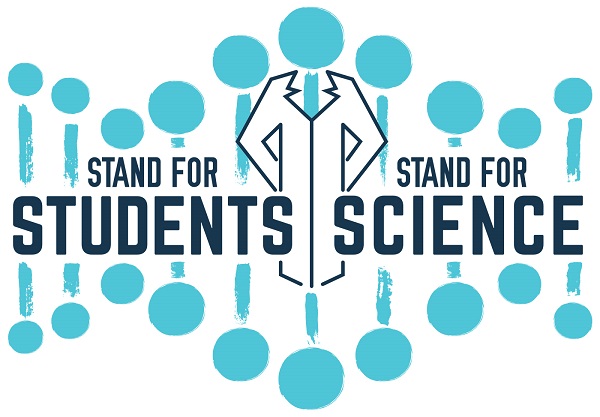Stand for Students, Stand for Science
By David Evans, NSTA Executive Director
Posted on 2017-03-26

Since the founding of our country, indeed since the beginning of western democracy, being well-informed includes being well-informed about science. “Whenever the people are well-informed, they can be trusted with their own government,” said Thomas Jefferson, 228 years ago, not long before he established the first science agency in the U.S. government, the Survey of the Coast, and commissioned the Lewis and Clark Expedition.
Today there is a growing rift between science as a way to understand the natural world and the formulation of public policy. We “debate” the causes of climate change; we think that evolution is “only” a theory; and many believe that vaccination causes autism. “Alternative facts” can be proclaimed with a straight face.
Years ago, Isaac Asimov noted, “There is a cult of ignorance in the United States, and there has always been. The strain of anti-intellectualism has been a constant thread winding its way through our political and cultural life, nurtured by the false notion that democracy means that ‘my ignorance is just as good as your knowledge.”
Now, more than ever, the need for science education is staggering and public support for science is undermined by deliberate misinformation and simple ignorance.
The March for Science is an effort to remind the public of the benefits of science and science education. These benefits range from meaningful careers for our children to improving our health to living sustainably on our planet to being well-informed in the voting booth. As educators—and as scientists—we have stayed in the shadows too long and I believe we must move into the spotlight of public attention. A bright light will sometimes expose weaknesses but we know that the only way to repair a weakness is to first see it.
In agreeing to partner with the March for Science, NSTA subscribed to a set of core principles and goals that I want to share with you:
Core Principles – We Support:
- Science that serves the common good
- Evidence-based policy and regulations in the public interest
- Cutting-edge science education
- Diversity and Inclusion in STEM
- Open, honest science and inclusive public outreach
- Funding for scientific research and its applications
Goals for the March:
- Humanize science
- Partner with the public
- Advocate for open, inclusive, and accessible science
- Support scientists
- Affirm science as a democratic value
I expect that each of these will receive some exposure at the March. None of these is political in a partisan way. And all of them are what we hope for in a science literate society.
Please join me on April 22 as we Stand up for Students and Stand up for Science.
 Dr. David L. Evans is the Executive Director of the National Science Teachers Association (NSTA). Reach him via e-mail at devans@nsta.org or via Twitter @devans_NSTA.
Dr. David L. Evans is the Executive Director of the National Science Teachers Association (NSTA). Reach him via e-mail at devans@nsta.org or via Twitter @devans_NSTA.
The mission of NSTA is to promote excellence and innovation in science teaching and learning for all.
Follow NSTA
Disclaimer: The views expressed in this blog post are those of the author(s) and do not necessarily reflect the official position of the National Science Teaching Association (NSTA).

